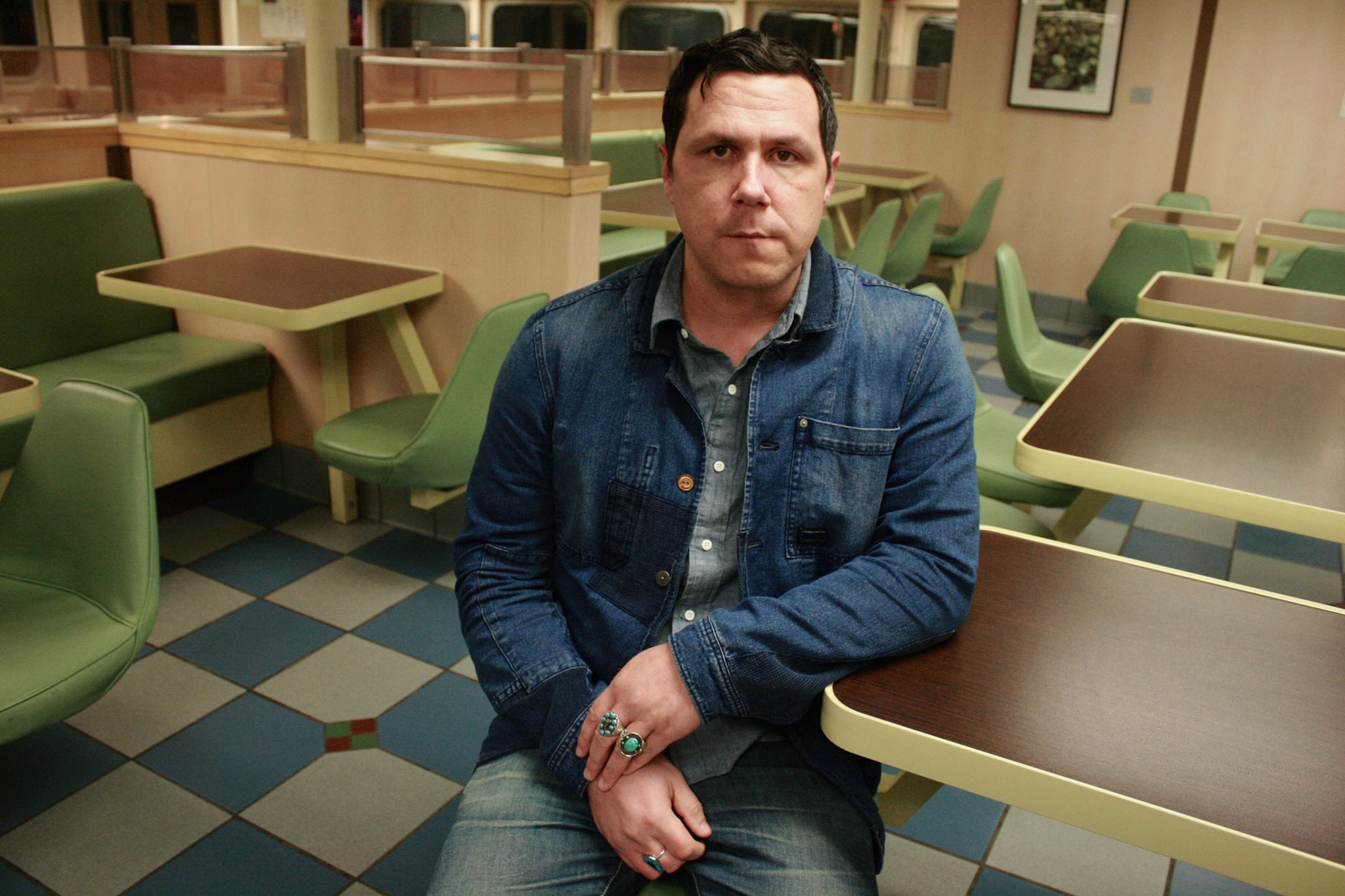 I’ll begin with an anecdote, or an aside:
I’ll begin with an anecdote, or an aside:
Ten years ago, I heard the Damien Jurado song “Tonight I Will Retire” on 89.3 The Current, a popular public radio station that broadcasts out of St. Paul. This was in the very early days of the station (I think they had been around for less than two years at that point) so back then, they played a pretty wide variety of things, and more often than not, if you tuned in, you’d hear something interesting, something new, or a song you loved.
But this isn’t about The Current and what they’ve turned into over the course of the last decade. This is about Damien Jurado.
Hearing that song created a moment for me—I turned it up in the car, and I was just in awe of what I was hearing. Up until that point, I had never heard anything so bare, so desolate and so spectral as what I was hearing coming from my car’s stereo. I made a note of the time I heard the song at, and when I came back home, I checked The Current’s playlist online, and found out what song it was.

 Since then, and since purchasing the album “Tonight I Will Retire” came from, Ghost of David, I’ve spent the last decade or so having an interest, or at least a somewhat passing interest, in Damien Jurado, a folk singer from a long standing tradition of folk singers from the Pacific Northwest.
Since then, and since purchasing the album “Tonight I Will Retire” came from, Ghost of David, I’ve spent the last decade or so having an interest, or at least a somewhat passing interest, in Damien Jurado, a folk singer from a long standing tradition of folk singers from the Pacific Northwest.
But Ghost of David is from 2002, and here we are in 2016. And things change.
If there’s one artist I can think of off hand who had a late career identity crisis set to music, it was Damien Jurado. The crisis started around four years ago, with the release of the psychedelic influenced Maraquopa, and Jurado’s most recent effort, the cumbersomely titled Visions of Us On The Land continues this crisis—right down to its embarrassing, sci-fi inspired album artwork.
To an extent, think Dr. Dog. Think Dungen. Think reverb usage just for the sake of reverb on everything. Think shuffling acoustic guitar rhythms. Think of the 1960s but corrupted of its originality. Think of these things and you’ll get the idea of where Jurado is going.

Well what exactly is my problem with an album like this?
For starters, it is boring as shit.
This music—on Visions of Us On The Land, but particularly this sub-genre or whatever—never goes anywhere.
 Visions of Us On The Land is practically dead on arrival—a lifeless and turgid affair, limping along with next to no energy, making it an excruciating exercise for the listener, let alone someone who was foolish enough to say they’d write a review of it for this website.
Visions of Us On The Land is practically dead on arrival—a lifeless and turgid affair, limping along with next to no energy, making it an excruciating exercise for the listener, let alone someone who was foolish enough to say they’d write a review of it for this website.
I mean, going into this, given Jurado’s track record as of late, I knew it may not be great, but I was not expecting this.
Sure, it tries to have energy—like the shuffling, reverb heavy rhythms of Visions of Us On The Land’s opening double shot, “November 20” and “Mellow Blue Polka Dot,” but there’s no real life behind these songs. It also seems worth noting that due to the production value behind these songs, they all sound almost exactly the same. Like, there is really nothing special or unique to distinguish one song from the others at certain points.
They are all just that bland and uninteresting.
There’s also a real lack of depth to the material on Visions of Us On The Land. On Ghost of David, Jurado writes about some serious shit—mental illness, suicide, adultery—sometimes all in the same song. Here, with his poor man’s Bon Iver falsetto drowning under the cacophony of all the reverb, it’s tough to tell what exactly Jurado’s peddling. But I’m not buying it, whatever it is. These are just empty words, propped up in front of disingenuous music.
I’m not saying that an artist can’t grow restless in a sound and want to branch out—countless others have done it, and done it well. But there’s something about going from a spectral folk singer to psychedelic troubadour that just doesn’t seem to work, and that is clearly what Damien Jurado has done on Visions of Us On The Land.
Rating: 1.5/5
Visions of Us on The Land is available on March 18th via Secretly Canadian.


